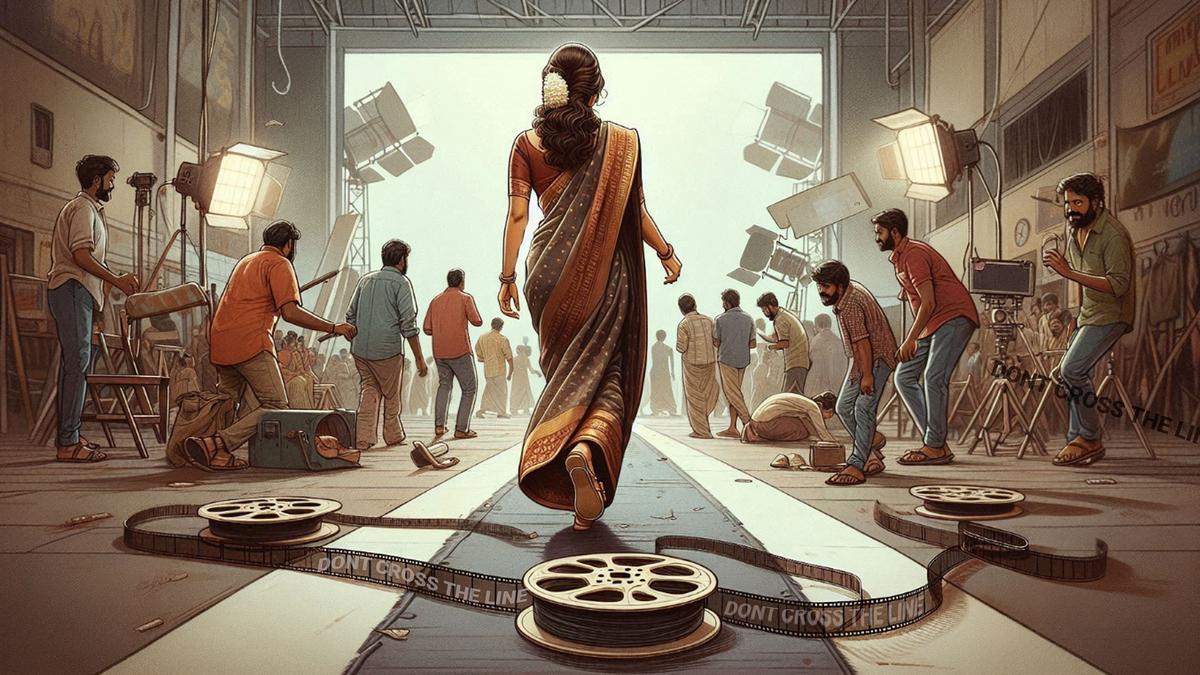
The Indian film industry has been thrust into the spotlight with calls for drastic reforms after the release of the Justice K. Hema Committee report. Published with limited redactions, this 235-page document exposes a disturbing pattern of sexual abuse, gender inequality, illegal bans, and gross labor violations, particularly within the Malayalam film industry. The report, which was initially submitted to the Kerala government in 2019, has shaken the very foundations of India’s film sectors, igniting a long-overdue conversation about safety and sanity for female professionals in the cinematic arts.
In the wake of the report’s publication, numerous female actors have come forward with accusations of sexual harassment against influential figures in Malayalam cinema. This has set off a chain reaction, culminating in the dissolution of the executive committee of the Association of Malayalam Movie Artistes (AMMA). All 17 members, including its president and veteran actor Mohanlal, tendered their resignations amid escalating allegations of sexual misconduct and misbehavior.
The repercussions of the Hema panel’s findings have reverberated across the broader Indian film industry. Film bodies and unions nationwide have been compelled to confront the disconcerting revelations and enforce redressal forums. In Tamil cinema, the South Indian Artistes’ Association (SIAA) resolved to ban sexual offenders from the industry for five years if a complaint is substantiated. Similarly, Film Industry For Rights and Equality (FIRE) members have urged the Karnataka government to form a committee led by a retired judge to probe issues faced by women, including sexual harassment in the Kannada industry. This call for action has been echoed by actors and technicians in Telugu, Bengali, and Hindi film industries. In a bold move, the Malayalam sector has proposed the establishment of a Progressive Filmmakers’ Association to replace outdated power structures with ones that promote equality and social justice.
Prominent voices in the industry have not remained silent. Actor Priyamani, who has graced Telugu, Tamil, Kannada, and Hindi cinema with her talent, emphasized the importance of the Hema Committee’s findings. “While the #MeToo movement fizzled out quickly, something like the latest committee is being taken more seriously and spoken about in length,” she remarked, advocating for similar committees in other industries to expose and address these pervasive issues.
Bollywood actor Swara Bhasker, one of the few prominent voices in her industry to respond to the report, stressed that investigation alone is insufficient. She called for specific guidelines to be instituted by both central and state governments to ensure the protection of women (and men) in all facets of the film, TV, and media industries. “There ought to be a government-sanctioned grievance redressal cell that can help complainants and victims and is accountable to the public,” she stated.
The #MeToo movement of 2018 revealed shocking cases of sexual misconduct, yet a culture of intimidation and silence has persisted, preventing many victims from speaking out. The Hema Committee report highlighted the extreme power wielded by male actors, filmmakers, and producers, who can blacklist anyone and ruin careers on whims, thereby silencing dissenting voices. Swara Bhasker pointed to the example of Hindi film actress Tanushree Dutta, who accused Nana Patekar of sexual harassment in 2008 and 2018 but saw her career suffer as a consequence.
The toxic work environment extends far beyond passive threats. Filmmaker Indhu V.S., who made her directorial debut in 2022, recounted the harrowing atmosphere on film sets dominated by men, where female professionals felt out of place and self-conscious.
. She described it as a “boys’ club” where women’s passion for cinema was disregarded. This environment forces women to “adjust” and “compromise” to pursue their careers—an issue starkly highlighted in the Hema report, which included testimonies about the prevalence of the “casting couch.”
Actor-producer Rima Kallingal, co-founder of the Women in Cinema Collective (WCC), which played a crucial role in initiating the Hema Committee, shared her initial optimism contrasted with eventual disillusionment. “I was reminded of my ‘shelf value’ as a female artiste and how we have no market value. Sexually loaded comments are a constant,” Rima recounted. This sentiment is echoed by actress Swara Bhasker, who bravely recounted her own experiences with harassment during her early career.
Working conditions for women on film sets also came under scrutiny. Basic facilities such as toilets and changing rooms were often nonexistent, indicating a broader disregard for women’s needs and safety. Veteran actor Radhika recounted a shocking incident where men on a film set were caught secretly recording nude videos of female actors. Priyamani expressed her outrage at this violation, questioning why only women were targeted and underscoring the importance of public discourse around such issues.
Cinematographer Preetha Jayaraman added another layer to the conversation, revealing that conditions for female technicians have only slightly improved over the years. “When I started as a technician, when we would go to Prasad Labs for color grading, there were no toilets for women,” she recalled. Today, some progress has been made in providing adequate facilities, albeit inconsistently.
Achieving respect and authority in the film industry remains an uphill battle for women, as Indhu V.S. noted. Her experience as a director was plagued by a lack of seriousness from male colleagues, who resented taking directions from a woman. Although she observed positive changes in the Malayalam industry by the time she directed “19(1)(a),” the struggle for recognition and respect persists.
Despite these daunting challenges, the Women in Cinema Collective and other reform-minded entities continue to push for systemic change. Actor Varalaxmi Sarathkumar has been vocal about the need for unbiased redressal forums, while veteran actor Simran advocates for committees that protect all genders. In her words, “The feeling of someone touching you without your consent is so terrible; it becomes a core memory that we can never recover from. You can forgive… but you can never ever forget.”
As the Indian film industry stands at a crossroads, the path forward demands comprehensive reforms, robust support systems, and a cultural shift towards respect and equality for all its members.












